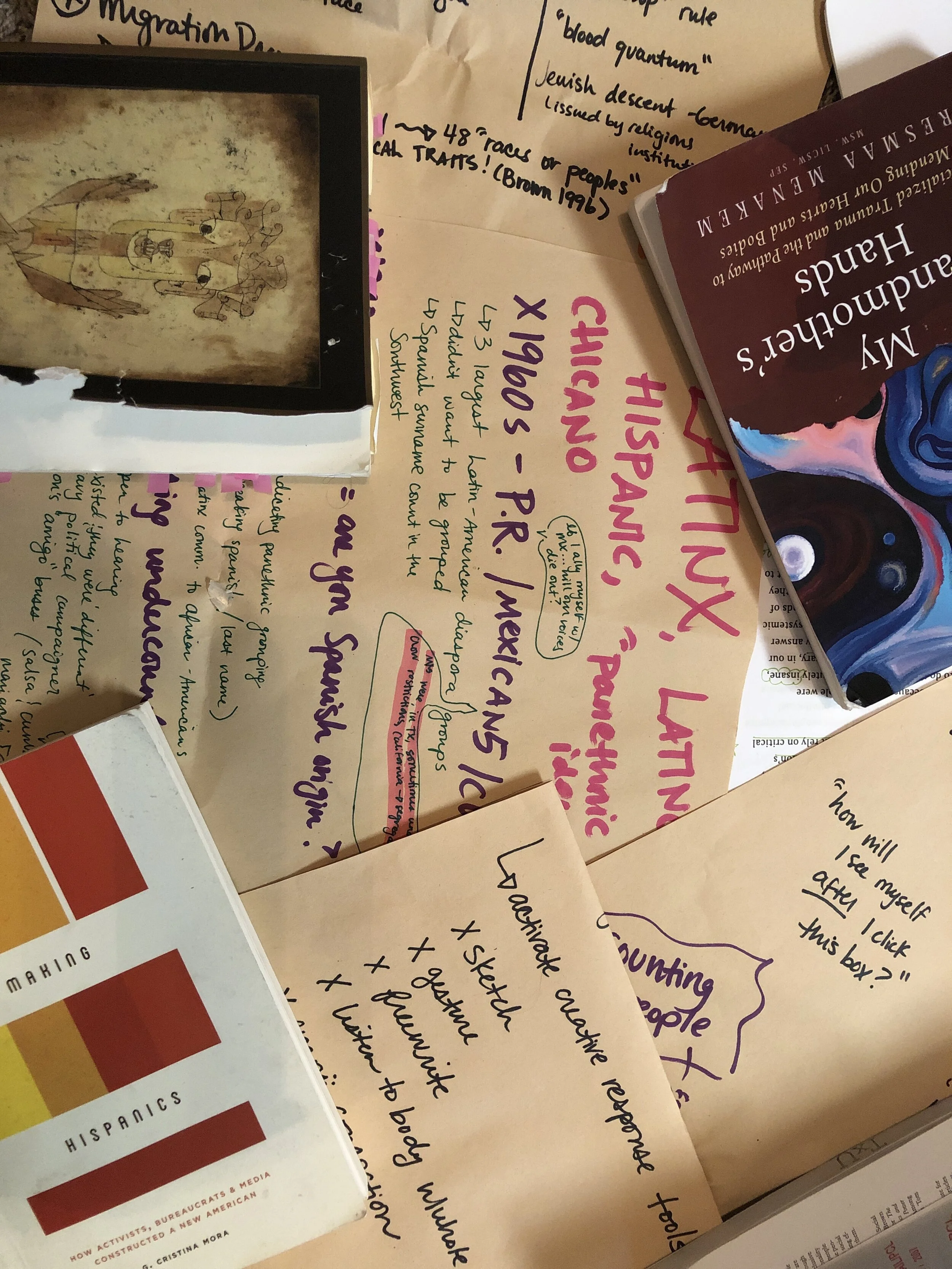
The Census
What is it and why should we care?
“the Census is about power” (Demby, NPR)
What purpose does the Census aim to serve and how does
t R a c IN G
the Census’ role in producing collective identities make YOU
f E e L ?
A demographic survey born in 1970, this once in a decade headcount of every person living in the United States is no stranger to drama, controversy, and question. The Census does more than provide a snapshot of how many people live in the United States for the distribution of federal resources, it shapes how “Americans” see and call themselves.
Or, as James Scott wrote in Seeing Like a State, it tries to “make a society legible,” in order to, “create a legible people” (Scott, 2, 65).

In order to understand what implications the Census has on individual & collective bodies, this page pulls together resources that define what the Census is and why it’s purpose and impact is called into question by scholars across social disciplines.
Get Bodied: Surfing the Body
The 2020 Census is the first Census ever offered online. Inspired by cyborg theory, this “get bodied” body scan intersects the scrolling feature of the web with an embodied sense of verticality to see if we can attune to sensations in the body while scrolling through a website.
The Census is…
a constitutionally mandated headcount of every person living in the United States and the five U.S. colonies. Oops! “territories”. According to the Census website,
“the 2020 Census will determine congressional representation, inform the allocation of hundreds of billions in federal funding, and provide data that affects communities for the next decade”
Some argue the census is the most important data set we have because it tries to provide a snapshot of who lives where, what people look like, and how people map out along other socially and culturally constructed categories.
The Census as…
“The Census has never been devoid of politically thorny issues… If it was only about counting people, and just getting the statistical numbers right, there might be less drama. But, because it’s about what we call ourselves, how we see ourselves, and how that will be connected to whether we’re represented or not, of course there’ll be drama.”
This project works to the body into a recent wave of interdisciplinary research that works to become aware of the uses and limitations of standard surveys and cultural identifiers by activating the body as an archive of knowledge for helping us understand how collective identities are produced, fostered, and impacting the body. This project of (re)imagining of the Census takes this process one step further asking, how does the way we see and call ourselves shape our individual and collective bodies and how can our bodies more intentionally shape the ways we want to see and call ourselves in the future?

When you’re ready, I invite your body into a recent wave of interdisciplinary research that works to become aware of the uses and limitations of standard surveys and statistics by activating the body as an archive of knowledge for helping us understand how collective identities are produced, fostered, and impacting the body.

